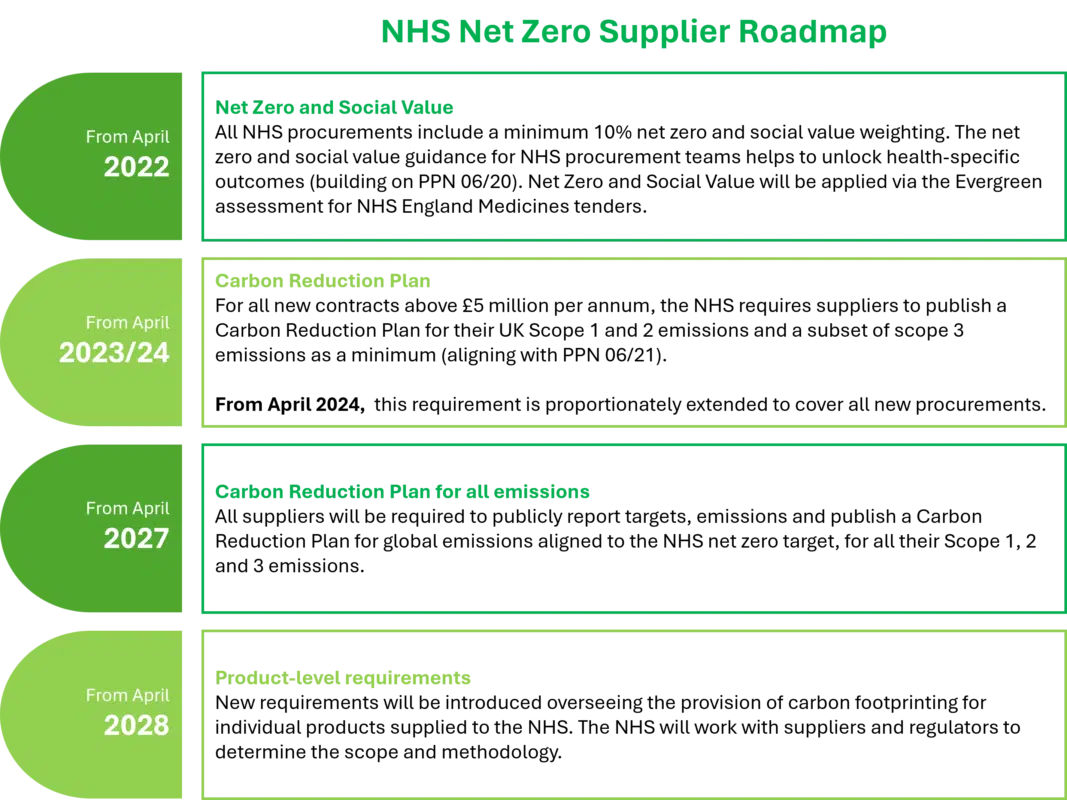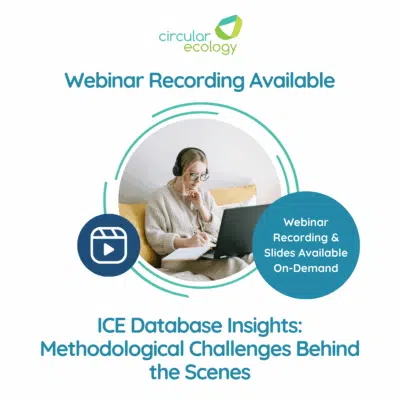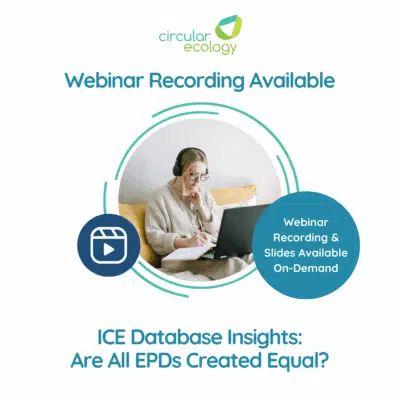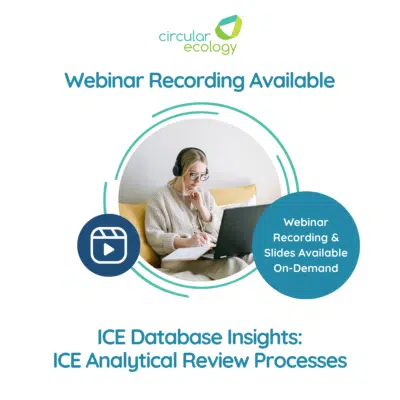Carbon Reduction Plan for NHS Suppliers
The NHS has committed to reaching net zero by 2040 for the emissions they control directly. Furthermore, they aim to reach net zero by 2045 for the emissions they influence. This commitment also applies to the goods and services it procures from its partners and suppliers. In order to support these goals, the NHS Net Zero Supplier Roadmap was developed.
The NHS Net Zero Supplier Roadmap builds on the UK Government Policy Procurement Note PPN 06/21 . It states that from April 2024, for all new procurement contracts, NHS suppliers are required to publish a Carbon Reduction Plan for their Scope 1&2 emissions and a subset of Scope 3 emissions as a minimum.
What do NHS suppliers need?
From April 2024, there are 3 elements required as part of the Net Zero Supplier Roadmap:
- Scope 1 & 2 organisational footprint
- Scope 3 (subset) organisational footprint
- Carbon Reduction Plan (CRP)
It is also a requirement to update these footprints annually. This allows for progress review of carbon reductions to see if they are on track to reach the planned targets.
Scope 1 & 2 Organisational Footprint
Scope 1 covers the direct emissions that occur from sources owned or controlled by the organisation. Examples include natural gas in central heating and fuel used in company owned cars.
Scope 2 covers the indirect emissions from the generation of purchased electricity that is consumed by the organisation.
Organisations may already calculate these emissions and these existing assessments can be used as part of the NHS requirements.
Scope 3 Organisational Footprint – NHS Supplier Subset
Scope 3 emissions are considered to be other indirect emissions. They result from the activities of the organisation but occur from sources not owned or controlled by the organisation itself.
Scope 3 emissions can often contribute the largest proportion of an organisation’s carbon footprint. As a result, they can take more time and resource to calculate.
In order to satisfy the NHS Net Zero Supplier Roadmap requirements from April 2024, the NHS does not require all 15 Scope 3 categories to be covered by the assessment. The initial categories considered in scope are:
- Upstream transportation and distribution
- Waste generated in operations
- Business travel
- Employee commuting
- Downstream transportation and distribution
As the above emissions come from sources not owned or controlled by the organisation, actual data can sometimes be difficult to obtain. Often the emissions for some of these categories can be estimated using an organisation’s spend data, in the first instance, until the organisation is able to mature its own data collection processes. Our guide to Scope 3 Footprints provides more information on the process.
Carbon Reduction Plan
After completing a Scope 1 and 2 footprint and then the Scope 3 subset, a carbon reduction plan (CRP) can now be developed. As of April 2024, this plan needs to cover Scope 1 & 2, as well as the initial subset of Scope 3 emissions mentioned. From April 2027, it will subsequently need to cover all Scope 1, 2 and 3 emissions.
The carbon reduction plan for NHS suppliers should identify the reporting organisation’s baseline and latest carbon footprint, along with a statement of ambition (i.e. carbon reduction targets), and a plan to achieve net zero emissions by a suitable target year. The content of the CRP should align with the existing UK government PPN 06/21 requirements. As such, any CRP already developed by an organisation for this PPN 06/21 purposes would be acceptable.
The UK government have released a CRP template which can be utilised as a minimum to ensure a suitable structure is followed and all the reporting requirements are met. Further details on the requirements from the NHS can be found here.
How Can We Help with a Carbon Reduction Plan?
Circular Ecology can support your organisation to satisfy all the requirements outlined by the NHS and PPN 06/21, by undertaking Scope 1&2 assessment, Scope 3 assessment and a Carbon Reduction Plan.
Above and beyond meeting the requirements of the NHS procurement process from April 2024, undertaking an organisational footprint assessment and a carbon reduction plan can be highly beneficial. As well as supporting an organisation’s sustainability journey, it ensures compliance with requirements when bidding for government contracts, supports internal strategic planning for cost and energy savings, and can help with an organisation’s green credentials and brand perception.
Please use the form below if you would like to reach out to us regarding these services:






